Happy Wednesday! In New Zealand, it’s long been known that sheep outnumber humans. But in a shocking underdog story, the humans are catching up—we’re at 4.5 sheep per New Zealander, down from 22 in 1982. It’s good to see humanity getting a win these days.
Quick Hits: Today’s Top Stories
- The U.S. will lift all sanctions on Syria, President Donald Trump announced from Saudi Arabia on Tuesday. For years, Syria—under the leadership of recently ousted dictator Bashar al-Assad—faced broad sanctions that blocked foreign investment and export revenue. Removing restrictions on the new government will give the country “a chance at greatness,” Trump said, adding that the decision followed conversations with Saudi Arabian Crown Prince Mohammed bin Salman (MBS) and Turkish President Recep Tayyip Erdoğan. Secretary of State Marco Rubio is expected to meet with Syria’s new foreign minister in Turkey this week.
- Saudi Arabia has committed to investing a total of $600 billion in the United States through a variety of deals, the White House announced Tuesday. The largest of the deals is a nearly $142 billion agreement for the Gulf state to purchase “state-of-the-art warfighting equipment and services from over a dozen U.S. defense firms,” which the White House described as the largest defense sales agreement in history. MBS said the investments could eventually total as much as $1 trillion, a figure equal to Saudi Arabia’s entire GDP last year. U.S. companies announced new commercial partnerships with Saudi Arabia, as well, including a data center project between the Saudi company Humain and Nvidia, which committed to sending 18,000 cutting-edge chips to the kingdom.
- Israel on Tuesday targeted Hamas’ Gaza leader, Mohammed Sinwar, in an airstrike on a command and control center under a hospital in the southern city of Khan Younis. The Israeli military reportedly discovered that Sinwar was in the bunker the same day as the strikes, but it could take several days before Israel can determine whether the Hamas head was killed in the attack. Sinwar became the leader of Hamas in Gaza after Israeli soldiers killed his brother, Yahya Sinwar—a key architect of the October 7, 2023, attacks—last year.
- The Trump administration on Tuesday announced plans to cut an additional $450 million in grants to Harvard, on top of the $2.2 billion already frozen. The administration’s task force on antisemitism sent a letter to the university stating that the school had failed to address the issues of “discrimination” and “antisemitic harassment,” although it did not cite any new infractions. The move followed a letter from Harvard President Alan Garber to Education Secretary Linda McMahon on Monday, in which pushed back on the task force’s earlier allegations and affirmed the Ivy League’s commitment to rooting out antisemitism on campus. The task force previously demanded sweeping changes in the university’s governance, admissions, and structure—demands that Harvard has rejected—in exchange for the resumption of federal funding. The university is currently suing the federal government to end the freeze.
- A group of Democratic attorneys general from 20 states filed two lawsuits against the Trump administration on Tuesday, alleging that the White House threatened to withhold federal funds from the states unless they took specific immigration enforcement measures. The lawsuits claim that the Trump administration used billions of dollars for transportation, counterterrorism, and emergency preparedness as a “bargaining chip” to force states to cooperate with immigration enforcement. However, no federal funding has yet been withheld.
- U.S. District Judge Stephanie Haines ruled Tuesday that the Trump administration can use the 1798 Alien Enemies Act to deport alleged Venezuelan gang members. However, the administration must allow the individuals 21 days to file a lawsuit challenging their removal. The order—which applies only to Haines’ Pennsylvania district—diverged from decisions by three other federal judges, who deemed the administration’s use of the authority unlawful. In April, the Supreme Court temporarily allowed the administration to invoke the law, provided that migrants are given the opportunity to challenge their deportations. The split among the district courts could increase pressure on the Supreme Court to resolve the issue.
- The consumer price index (CPI) rose 0.2 percent month-over-month and 2.3 percent annually in April, the Bureau of Labor Statistics reported Tuesday. The increase was slightly higher than March’s 0.1 percent decline but lower than the 0.3 percent increase economists expected, as the Federal Reserve tries to bring inflation down to its 2 percent target. CPI could increase in future months, however, as analysts expect the effects of the tariffs to work their way through the economy and drive prices higher.
The Fed Finds Itself Between a Rock and a Hard Place
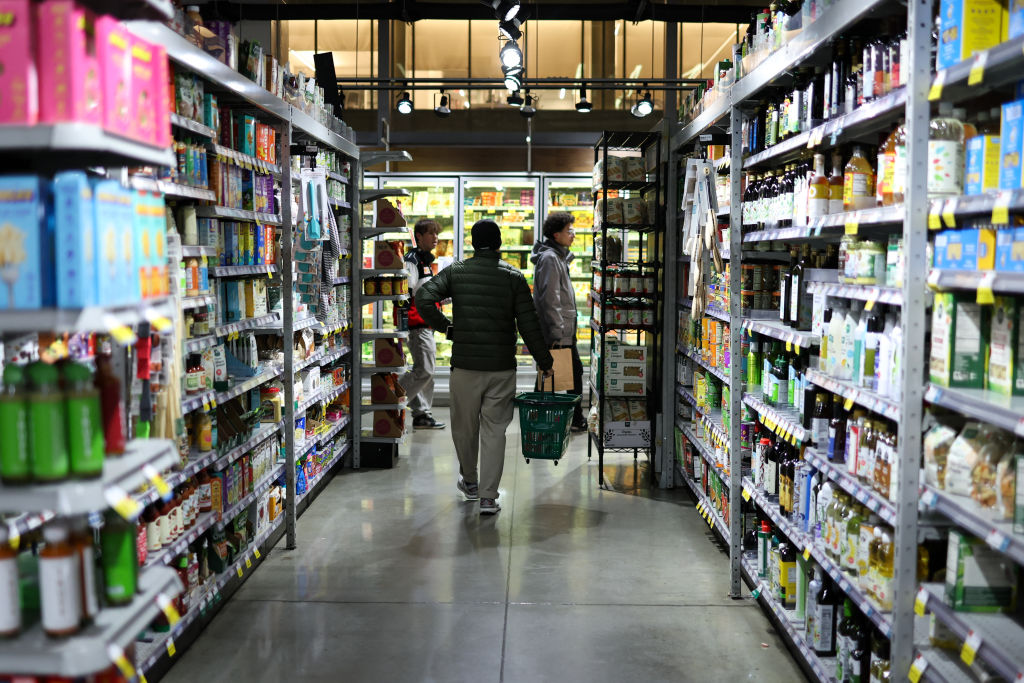
“No Inflation, and Prices of Gasoline, Energy, Groceries, and practically everything else, are DOWN!!!” President Donald Trump wrote on Tuesday, following the release of April’s consumer price index (CPI), a key measure of inflation.
Hyperbole aside, last month’s inflation rate was lower than economists expected. But some analysts believe the relatively strong report could be the final calm before the storm, as American firms brace for the impact of Trump’s unpredictable trade policy.
While Trump imposed a series of tariffs early in April, pauses in implementation, various climbdowns by the administration, and anticipatory buying by importers have softened their initial blow for consumers. As the Federal Reserve faces pressure to cut rates in the face of a slowing economy, it must now wait to see how much prices will rise as a result of the import taxes—and how much room it will have to boost a potentially flagging economy.
According to a Tuesday report by the Bureau of Labor Statistics, CPI rose 0.2 percent month-over-month and 2.3 percent annually in April. The monthly increase was slightly higher than March’s price decline of 0.1 percent, but lower than most economists’ expectations of 0.3 percent. Core CPI—which excludes more volatile food and energy prices—increased 0.2 percent from March and 2.8 percent annually.
Aside from slight price hikes for consumer goods like furniture, there is little evidence that Americans began to feel the pain of Trump’s tariffs in the month of April. The reprieve may be only temporary, however, as the duties begin to work their way through the U.S. economy.
Many importers, anticipating Trump’s implementation of levies on imported goods, have rushed to stockpile surplus inventory over the last several months. Apple, for example, surged flights of Macs and iPhones to the U.S. last month, before the president excluded laptops and phones from his high tariffs on goods manufactured in China (which have now been walked back themselves). In March, the U.S. imported $50 billion in pharmaceutical products, a figure that would have accounted for one-fifth of all such imports in 2024.
With stockpiles almost full to bursting, U.S. firms will have breathing room before being forced to raise prices, selling from reserves of goods purchased at pre-tariff prices. “It was always a stretch to think that there would be any effect in April, and in fact, there is no effect apparent,” Joseph Gagnon, a senior fellow at the Peterson Institute for International Economics, told TMD.
Gagnon also noted that many companies are likely waiting to see whether tariffs will stick before raising prices. “They don’t want to raise prices if their tariffs will come down next month,” he noted. “They might just absorb one month of higher tariffs, expecting it to come back down.” But other companies have already announced plans to offset some of the costs to consumers, including Rolex and Mattel (it may indeed be harder to buy 30 dolls this Christmas!).
But eventually, the U.S. could see more encompassing price hikes. “Next month, and after, you’d certainly expect the tariffs to be there,” in overall price levels, Desmond Lachman, a senior fellow at the American Enterprise Institute and a deputy director at the International Monetary Fund, told TMD.
Inflation, while relatively stable, is still above the Federal Reserve’s 2 percent target—and tariffs are expected to raise prices further. Fed Chairman Jerome Powell warned last week that the duties could result in price hikes and other adverse economic outcomes if they’re not walked back. “If the large increases in tariffs that have been announced are sustained, they are likely to generate a rise in inflation, a slowdown in economic growth, and an increase in unemployment,” he said at a news conference, after announcing the Fed’s decision to hold interest rates steady. “All of these policies are evolving, however, and their effects on the economy remain highly uncertain.”
Powell was correct to note that instability remains the order of the day. The policies in question have evolved rapidly in recent weeks and even days. Over the weekend, U.S. and Chinese officials hammered out a plan to temporarily reduce tariffs between the two countries, ostensibly to create space for negotiations toward a larger trade deal.
But as we noted yesterday, tariffs, while pared back from Trump’s maximalist threats, remain high: “Reciprocal” tariffs on Beijing, together with levies placed on Chinese imports in retaliation for its alleged role in the fentanyl trade, add up to a 30 percent tariff on all Chinese-made goods. It’s a substantial reduction from the 145 percent tariff Trump had previously imposed, but according to a Monday report by the Yale Budget Lab, the average tax U.S. consumers pay on imported goods still stands at 17.8 percent—the highest rate since 1934. The report also predicts a short-term increase in the price level of 1.4 percent, reducing the real income of the average household by $2,300 annually.
The Fed now finds itself in a difficult position. Its “dual mandate” requires it to keep inflation stable while also maximizing employment. But if tariffs, by causing consumption to drop as prices rise, cool economic growth, the Fed’s options will be limited. Cutting interest rates to maintain growth and employment runs the risk of unleashing inflation. Meanwhile, holding rates steady for too long risks suppressing growth and increases the chance of a recession. “It’s a tough place for the Fed to be,” Gagnon said.
The extent of the slowdown is difficult to measure, due in part to the frontloading of imports in the first quarter of 2025, but economists and Fed officials expect economic growth to decelerate in the coming months. “While the latest data show a resilient economy, I expect growth this year to be slower than last,” Adriana Kugler, a member of the Fed’s board of governors, said in a Monday speech at the Central Bank of Ireland.
The president is aware of that risk, and has repeatedly pressed Powell to cut interest rates. “‘Too Late’ Jerome Powell is a FOOL, who doesn’t have a clue,” Trump wrote on social media last week, after Powell announced that the Fed would not cut rates. Following Tuesday’s CPI report, Trump was back at it with Powell’s new nickname: “What is wrong with Too Late Powell?” he wrote. “Not fair to America, which is ready to blossom? Just let it all happen, it will be a beautiful thing!”
But Trump’s comments may actually be working against his aims of convincing the Fed to lower rates and juice growth. If markets detect that a rate cut is motivated by political pressure from the president, investors could lose confidence in the Fed’s ability to keep inflation relatively low and relatively predictable.
Powell sought to ward off speculation on that front at last week’s press conference. It “doesn’t affect our doing our job at all,” he said in response to a question about whether Trump’s comments changed the board of governors’ decision-making processes. “We’re always going to consider only the economic data, the outlook, the balance of risks, and that’s it.”
As long as the economy’s fundamentals remain fairly solid, the Fed will likely be able to sit tight and wait to act until the data is crystal clear. Historically, Gagnon noted, when faced with supply shocks like tariffs, the Fed’s policy is to “look through” such one-time events and wait for price levels to work themselves out. However, if inflation ticks up or growth slows down, it will have to make a decision, mindful of the criticism it received in 2022 for waiting too long to raise interest rates in the face of inflation that Powell termed “transitory.”
Consumers expect both to happen. The University of Michigan’s consumer sentiment index for April fell by 8 percent from March, with little reason to expect that the preliminary May data set to be released this Friday will look much better. While not always a direct indicator of what will soon happen in the “real economy,” falling sentiment is often a predictor of scaled-back spending. Americans also expect inflation to pick up again: The New York Fed’s survey of consumer expectations, released last week, showed that Americans predict inflation to reach 3.6 percent in a year from now, the highest level since 2022.
“We think right now the appropriate thing to do is to wait and see how things evolve,” Powell said last week. “There’s so much uncertainty.” For now, he’s in a good position to do so. But reverberations from Trump’s tariffs are already being felt here in the U.S.: Last week, the volume of shipments through the Port of Los Angeles, North America’s busiest port, was down 35 percent. It may take months, but the effects of that shortage in inventory are likely to be absorbed by the American consumer. When that happens, the Fed will have to grapple with an economy that’s still waiting for the other shoe to drop.
Today’s Must-Read
Largely unnoticed by the general public on both sides of the Atlantic Ocean is a particular way America has pulled away from Europe: The average American is now vastly more affluent than the average European. The difference is not only reflected in the overall sizes of their respective economies but by the much more practical metrics of disposable income, living space, and accessibility to basic services. Despite the overwhelming evidence, though, the idea that Americans are better off than their European counterparts is an unpopular sentiment. I casually mentioned on a recent episode of Paul Krugman’s interview show that, whereas both continents were similarly affluent a few decades ago, America is now nearly twice as rich as Europe. Cue a flood of outraged emails.
Toeing the Company Line
In Plane Sight
Why (some) populists are mad about the latest presidential bribe.
Exiled Russian Journalists Face Growing Threats in Europe
Already grappling with surveillance and arrest warrants, reporters and outlets are also dealing with a loss of international aid.
The Root of Our Dysfunction? Congress.
Legislators have conceded too much power to the president, and judges are left to clean up the mess.
Do Federal Funding Cuts Spell the End for ‘Sesame Street’?
The nonprofit group that owns the show collects only 4 percent of its revenue from the government.
Reagan Rolls Over
The Industrial Revolution and its consequences.
Worth Your Time
- In an excerpt from their upcoming book, Original Sin: President Biden’s Decline, Its Cover-Up, and His Disastrous Choice to Run Again, Jake Tapper and Alex Thompson pulled back the curtain on former President Joe Biden’s shocking mental decline. One of the most revelatory moments came at a 2024 fundraiser co-hosted by actor George Clooney. “Clooney was shaken to his core. The President hadn’t recognized him, a man he had known for years. Clooney had expressed concern about Biden’s health before—a White House aide had told him a few months before that they were working on getting the President to take longer steps when he walked—but obviously the problem went far beyond his gait. This was much graver,” they wrote. “Clooney was certainly not the only one concerned. Other high-dollar attendees who posed for photographs with [former President Barack] Obama and Biden described Biden as slow and almost catatonic. Though they saw pockets of clarity while watching him on television, and onstage later that night, there were obvious brain freezes and clear signs of a mental slide. It was, to some of them, terrifying. Obama didn’t know what to make of how his former running mate was acting. At one point, in a small group of a few dozen top donors, Biden began speaking—barely audibly—and trailed off incoherently. Obama had to jump in and preside. At other moments, during photos, Obama would hop in and finish sentences for him.”
Presented Without Comment
New York Times: The Pope’s Florida Brother, a MAGA Disciple, Plans to ‘Tone It Down’
Also Presented Without Comment
NBC News: DOJ ‘Weaponization’ Group Will Shame Individuals It Can’t Charge With Crimes, New Head Says
The conservative activist named by President Donald Trump as the head of the Justice Department’s “Weaponization Working Group” said Tuesday he planned to “name” and “shame” individuals the department determines it is unable to charge with crimes, in what would amount to a major departure from longstanding Justice Department protocols.
…
“There are some really bad actors, some people that did some really bad things to the American people. And if they can be charged, we’ll charge them. But if they can’t be charged, we will name them,” [Ed] Martin said. “And we will name them, and in a culture that respects shame, they should be people that are ashamed. And that’s a fact. That’s the way things work. And so that’s, that’s how I believe the job operates.”
In the Zeitgeist
In the last decade, a sea of action movies inspired by—or ripping off—the hit John Wick franchise have inundated Hollywood. But one of the most surprisingly fun post-Wick films was Nobody, the 2021 film starring Bob Odenkirk of Better Call Saul fame. And, after a four-year wait, Odenkirk’s action hero is back for a sequel set to hit theaters in August.
Let Us Know
Do you expect to see accelerated inflation in the coming months?
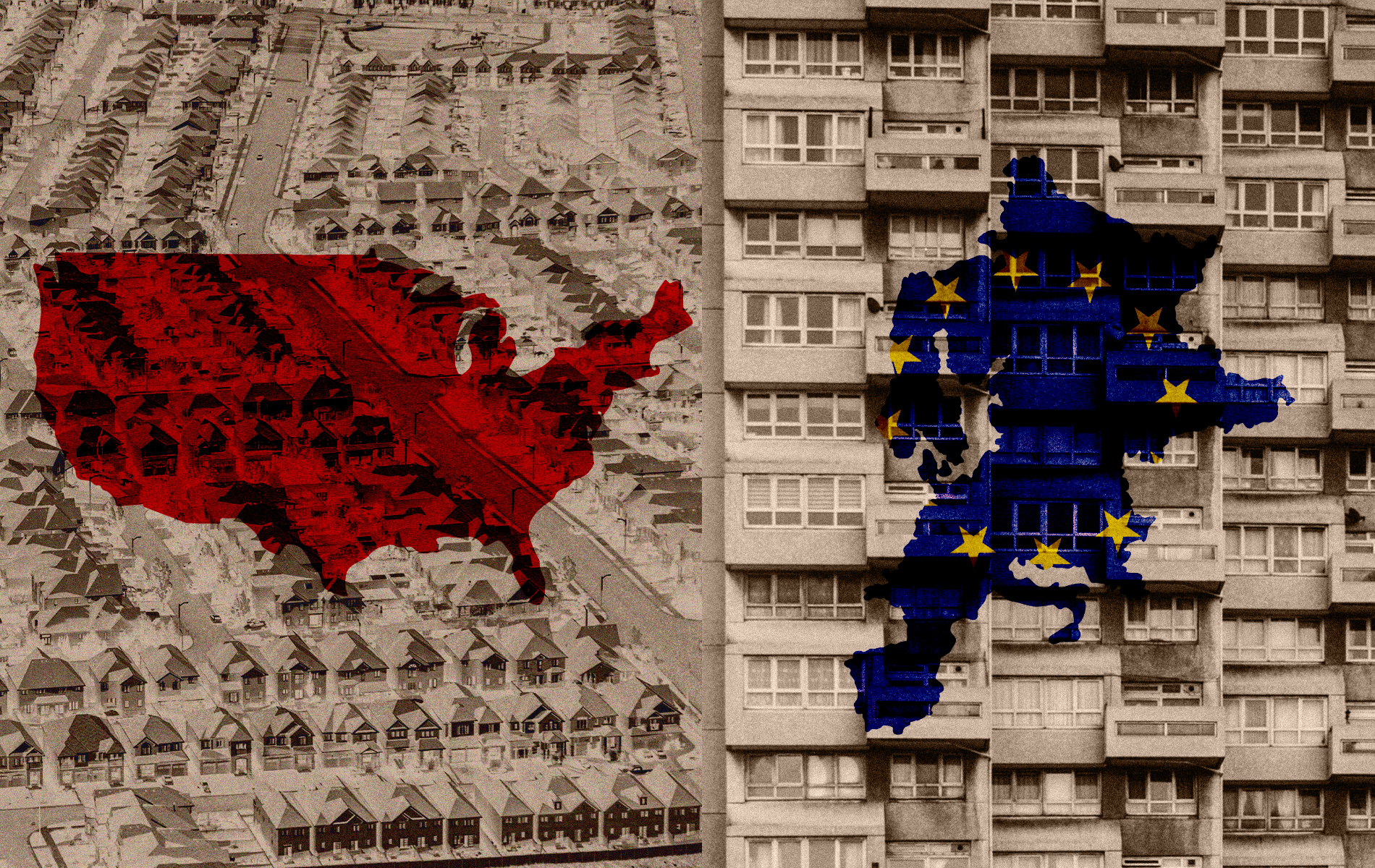


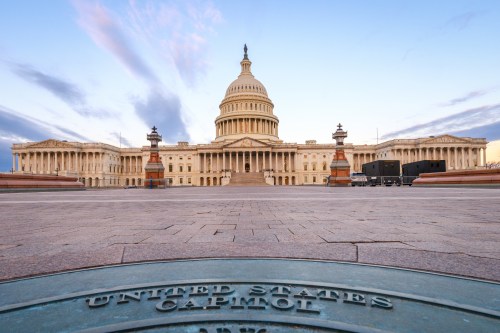

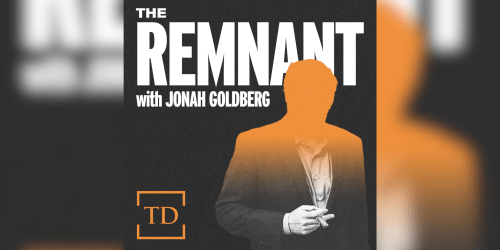



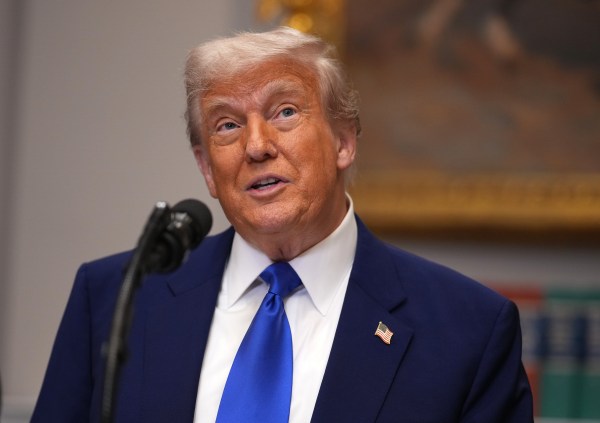

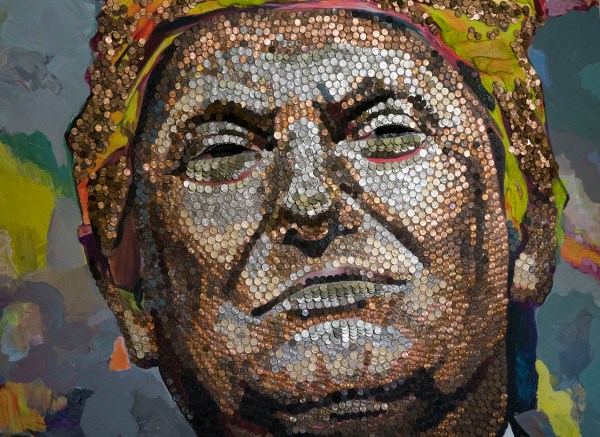
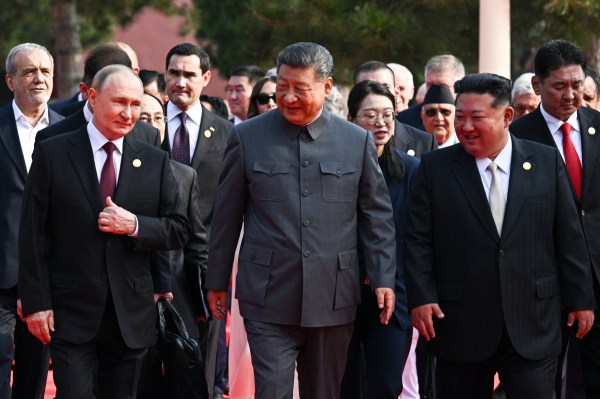
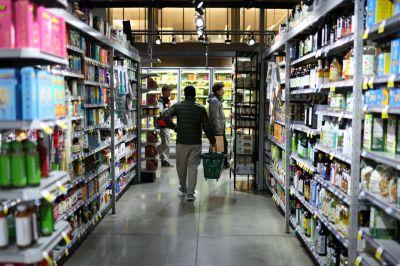
Please note that we at The Dispatch hold ourselves, our work, and our commenters to a higher standard than other places on the internet. We welcome comments that foster genuine debate or discussion—including comments critical of us or our work—but responses that include ad hominem attacks on fellow Dispatch members or are intended to stoke fear and anger may be moderated.
With your membership, you only have the ability to comment on The Morning Dispatch articles. Consider upgrading to join the conversation everywhere.